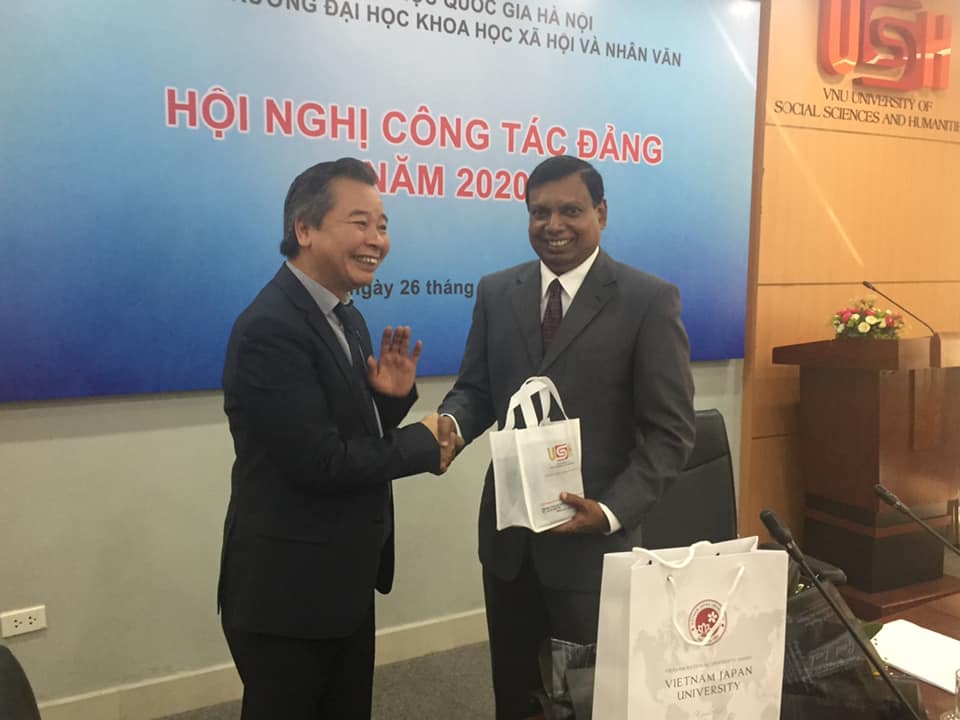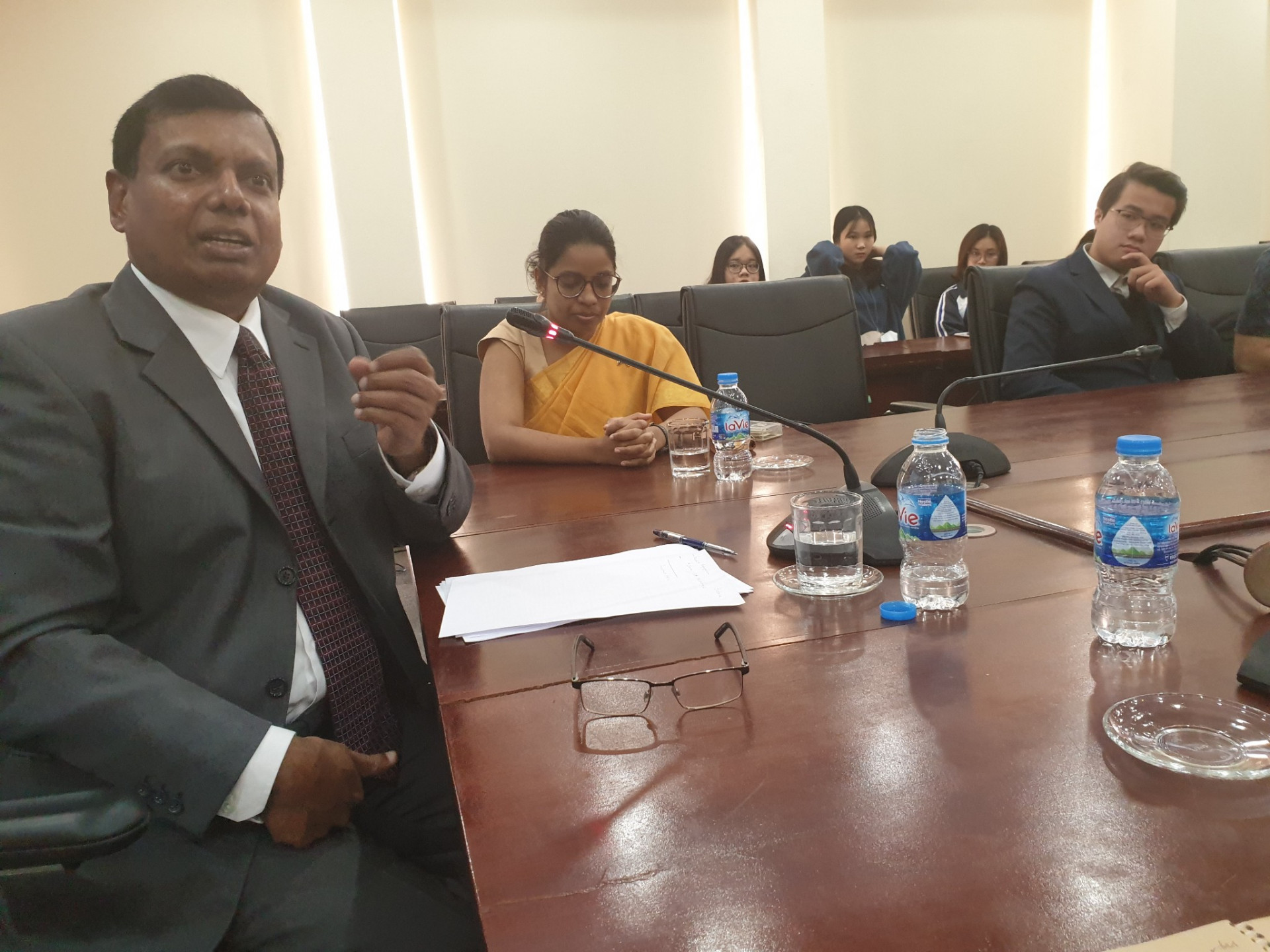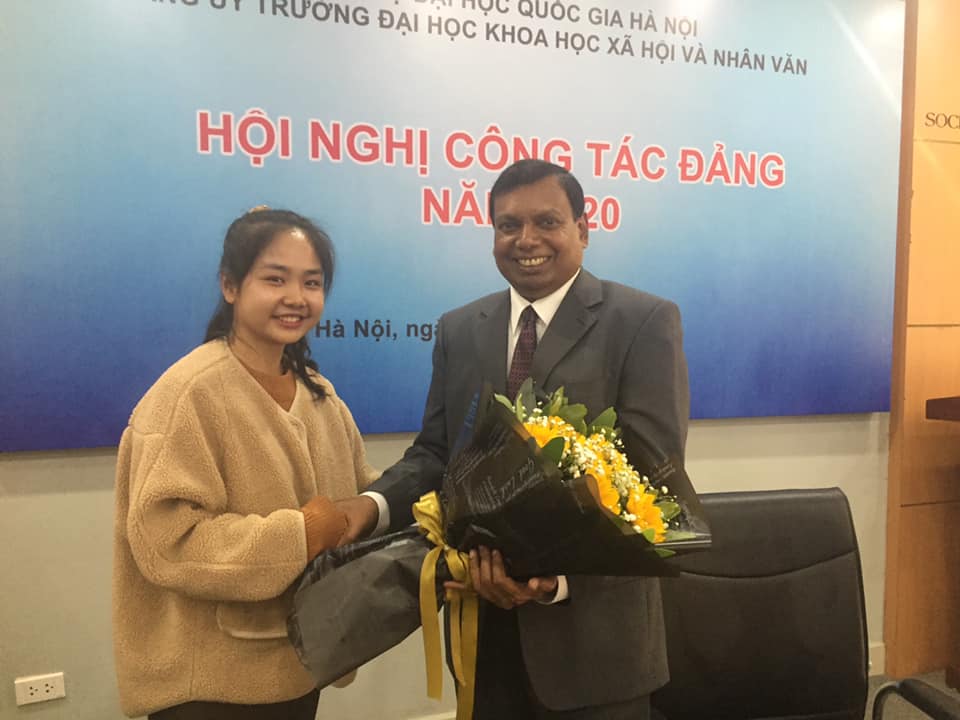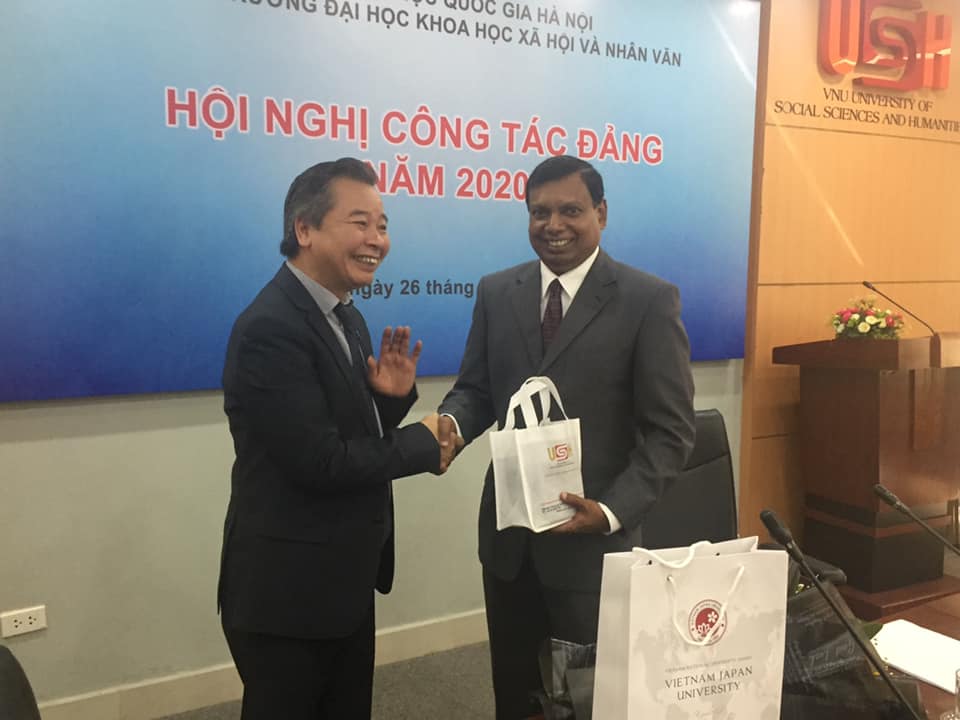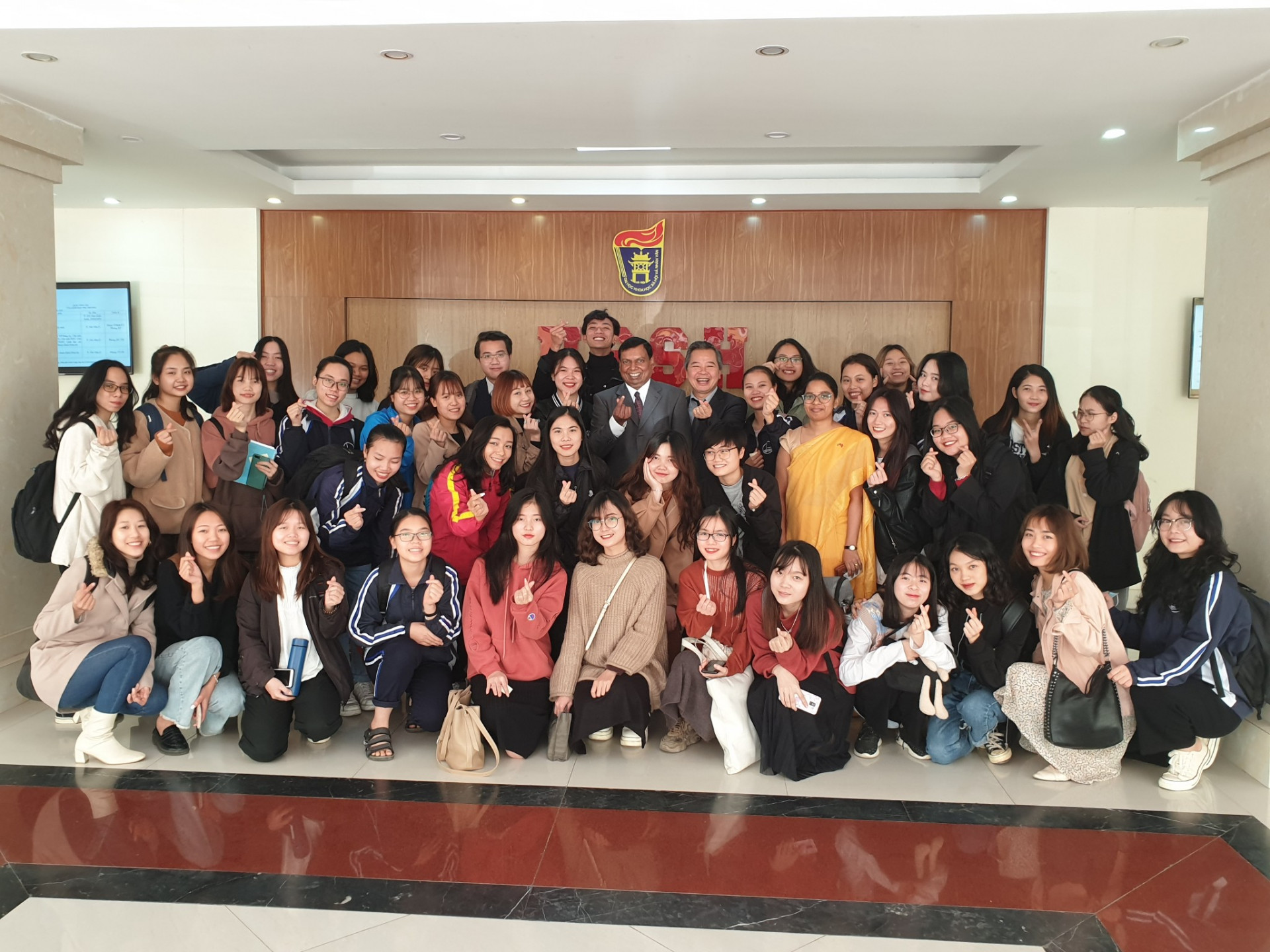The presentation of Ambassador Walpita Gamage Prasanna covered the foreign policy of Sri Lanka, its main features, and the advantages and challenges in implementing it.
Ambassador Walpita Gamage Prasanna
Sri Lanka is geographically located almost at the center of the Indian Ocean, with a seabed of 1,340 km long, and has interactions with and countries and continents around this region such as India to the North, Africa to the West and Southeast Asian countries to the East. This country's geographical position has turned it into an intersection of economic, commercial, cultural, and religious activities in the past and present between the East and the West. Its political regime is multiparty parliamentary democracy, influenced by the UK as well as its neighbor India.
In order to harmonize relations with many countries around the Indian Ocean, including major powers, Sri Lanka has maintained a relatively neutral, politically unaffiliated foreign policy during the Cold War to this day. Its foreign policy consists of three pillars: national sovereignty, national security, and economic development; among which economic development is supported by economic diplomacy, including the mobilization of capital from international financial in the form of assistance development.
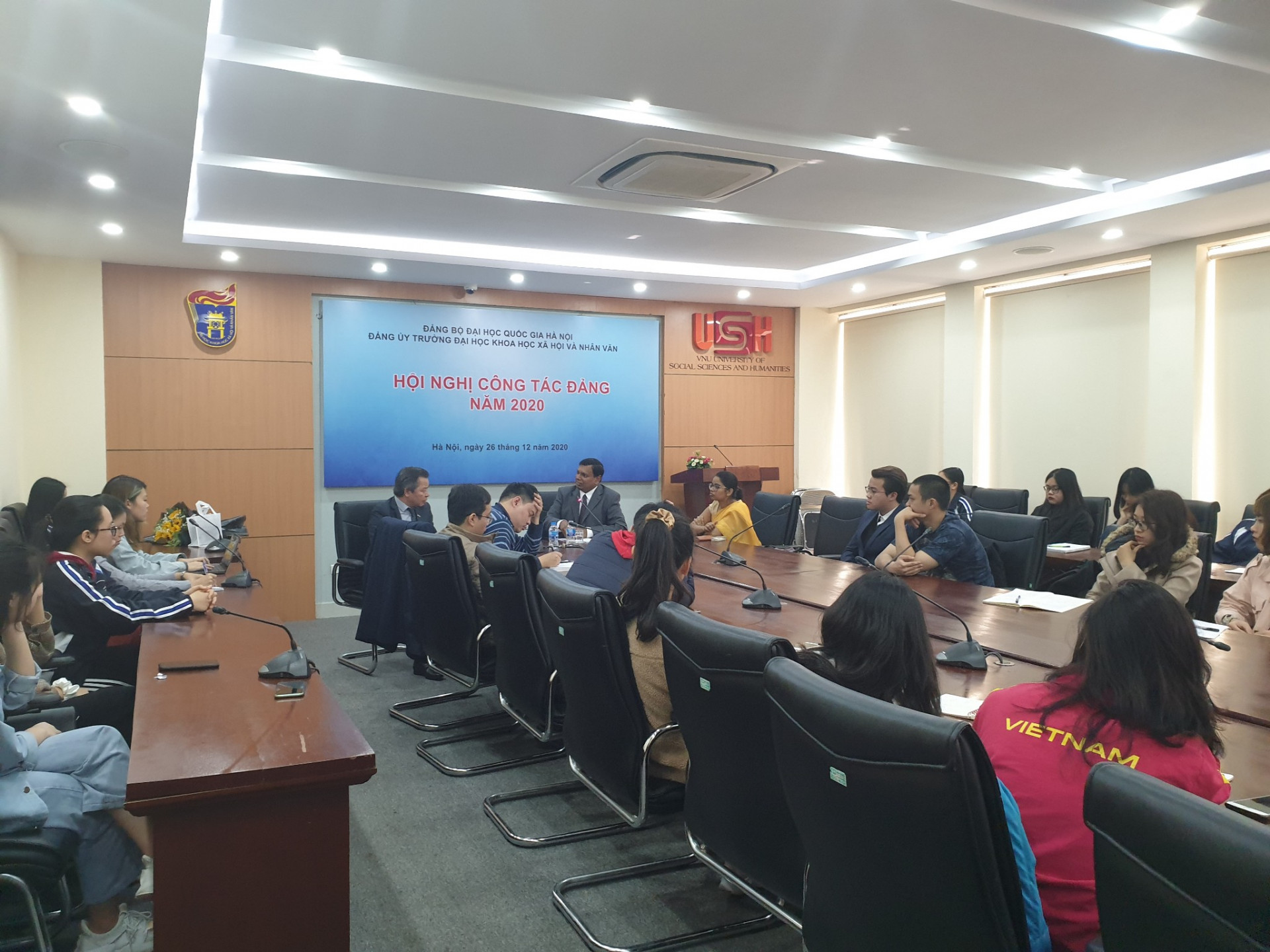
However, in the process of implementing the aforementioned outward-looking economic policy, Sri Lanka has faced many challenges, in which the balance of relations between India, China and the West is the biggest one. The Sri Lanka's government skillfully maneuver itself between the relations to gain economic interests and reduce conflicts. As with the Non-Aligned Movement states, it is important that Sri Lanka balance all interactions and avoid falling into a spiral of competition among great powers.
Nguyen My Dieu (Student of FAculty of International Relations) gives a bouquet of flowers to Walpita Gamage Prasanna
Towards Southeast Asian countries, Sri Lanka advocates to contribute to the stable and peaceful development of the region through multilateral institutions. Sri Lanka wishes to contribute to trade development to strengthen linkages between countries.
Prof. Dr. Pham Quang Minh delivers a gift to Ambassador Walpita Gamage Prasanna
Towards Vietnam, Sri Lanka maintains traditional and friendly relations given that the two countries have just celebrated 50 years of diplomatic relations (July 21, 1971). Over the past 50 years, the two countries have witnessed 53 high-level visits between their leaders. Trade turnover of the two countries in the year reached nearly 301 million USD and the two strive in the future to raise the number to 1 billion USD. Currently, Sri Lanka has 14 investment projects in Vietnam, mainly in the textile and garment sector and Sri Lanka companies create about 9,000 jobs for the Vietnamese. In the coming time, Sri Lanka hopes to promote educational and cultural cooperation with Vietnam. Ambassador Walpita Gamage emphasized the role of the young generation in bilateral relations between the two countries.
Ambassador Walpita Gamage Prasanna poses with the University's students
Regarding the presentation, Ambassador Walpita Gamage Prasanna received questions from students of the University on such issues as the process of making foreign affairs decisions in the Sri Lankan government, how to balance relations with the great powers of Sri Lanka; foreign direct investment in Sri Lanka; the promotion of student exchanges between Vietnam and Sri Lanka; and textile trade between the two countries.
